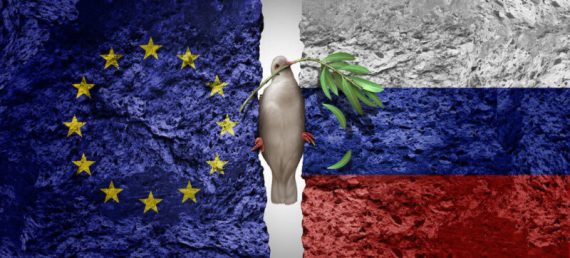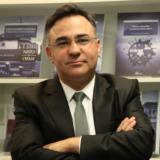A
state’s foreign policy comprises its activities and initiatives to defend its relationships and interests in relation to other states, governmental and non-governmental actors, political entities, etc. as represented by a state-centric logic through a well-defined strategy.
According to the realist foreign policy understanding, the state, the legitimate actor in the eyes of the international community, aims to realize a set of predefined goals of achieving its survival, on the one hand, or the survival of the regime, leader, or public that it perceives as the backbone of its existence. Foreign policies may also prioritize specific concerns of states, leaders, elites, etc.
The Westphalian notion of sovereignty (1648) and the 1815 Congress of Vienna have played a vital role in forming modern foreign policy and diplomacy. Nevertheless, the decades after the Cold War paved the way for the emergence of a new foreign policy model which transformed diplomacy through a new interpretation. The framing and implementation of foreign policy has changed per its officialized methodology, actors, and emerging themes or proceedings.
Methodology
The method of conducting new foreign policy has become a mixture of old-fashioned practices and newly emerging ones. Diplomacy still serves to shape foreign policy while the latter is exposed to new priorities. For example, foreign policy could espouse a facilitative role for non-state actors imitating a state function. In this sense, new foreign policy is no longer about only representing the head of state abroad, but involves a whole array of complementary functions.
Foreign services, for instance, now defend not only the state’s political interests but also the tax-paying corporations’ expectations through cordial visits to the ministries and institutions of other countries. The Libyan crisis is an excellent case in point. In 2019, the interested states were supportive of either Khalifa Haftar or the Government of National Accord (GNA) of Tripoli, while the defeat of Haftar’s army changed third parties’ foreign policies giving them leverage over private enterprises by virtue of the former having a share in business opportunities. This shifted the issue of direct or indirect military support to conflicting parties towards a mood of cooperation.
On the other hand, intelligence agencies assume more active roles in recommending foreign policy options. Foreign services have become executive organs of political leadership guided by intelligence organizations and security advisers as is evident in the U.S. involvement in Syria. Both CENTCOM and the CIA, in coordination with the security advisers to the U.S. President, were influential in shaping the United States’ Syria policy. Hence there is a sort of new centralization and decentralization in foreign policy-making that involves the multiplicity of organizations active in shaping the process.
Track II diplomacy has added another dimension since civil society organizations, either backed by foreign services or acting independently, pave another way to infiltrate foreign policy options. Track II diplomacy has been perceived as a useful method to persuade the interlocutor in the long run. It is actually the initial step taken by civil society initiatives to change the public’s or decision-makers’ opinions. Nevertheless, it is still the state that finalizes a folder.
Actors
Like the Track II procedure of foreign policy-making, actors in foreign policy multiply through various processes such as managing, administering, or implementing.
State actors can sometimes be assisted or challenged by non-state actors that may result in the breaching of the fundamental principle of foreign policy – legitimacy. The U.S. support to PKK offshoots in northern Syria is a significant example of loss of legitimacy since foreign policymakers seek their own interests bypassing international legitimacy and ethics.
At the same time, there are think tanks and academics, rising actors of foreign policy, that have the great potential to shape public opinion through publishing credible reports. The prestige of such civil initiatives has pushed the foreign services of many countries to provide funding to these institutions.
Another case is the privatization of foreign policy. The last two decades witnessed private companies attempting to mediate between conflicting parties through funding provided by governments. Yet, in certain cases, the source of funding can render these initiatives uncredible in the eyes of the concerned parties.
Themes of foreign policies
Other than the methodologies and actors of foreign policy, the themes have changed from hard politics to a combination of hard and soft politics. Themes of interest in foreign policy-making, like the field of security, were widened and deepened. Foreign policy is now prone to track current phenomena like climate, market economy, society, culture, and sports.
Military and defense issues are still matters of grave interest, and intelligence and defense institutions are involved in designing strategies in these fields. Aside from themes beyond the capacity of states, requiring a collective response, governments outwardly promote a cooperative foreign policy but behind the scenes compete for relative gains. Furthermore, newly emerging themes of foreign policy push foreign services to further compartmentalization. A competition in a certain field, say political disputes, does not impede cooperation other fields, say energy or commerce.
Today’s foreign policy interacts more with individuals be they voters, social entities, or interest groups. Foreign policy is designed to take into account reactions of citizens and the public interest. In the age of justification through public opinion, foreign services rely on surveys, sociological and cultural analyses, and social media monitoring. In this context, foreign policy not only comprises the formal engagement of governments, it is a composition of many newly emerged, influential units together with the already established ones.
Recommended
States and changes in foreign policies
Given their new mode, states are more inclined to change their foreign policy style through new procedures, norms, and institutions. Traditional foreign policy-making falls short of assessing the bigger picture of what is happening on the national and international levels.
Relying exclusively on diplomatic representation is not enough to resolve conflicts, make peace, or manage international affairs. New methods go beyond conventional proceedings, whereby intelligence services and security bureaucracy took on leading roles behind closed doors.
Current foreign policy actors and themes require states to rely on civil society and private initiatives. Some states, mainly authoritarian ones, may resist the change required in shaping their foreign policies; however, ultimately they will have to comply with the new modus operandi.
New foreign policy must be inclusive, capable of monitoring various aspects of reality on the ground, and committed to understanding and explaining newly emerging themes. Taken together, this enforces an overall conceptual change in foreign policy-making rather than simple adjustments by all parties involved.





